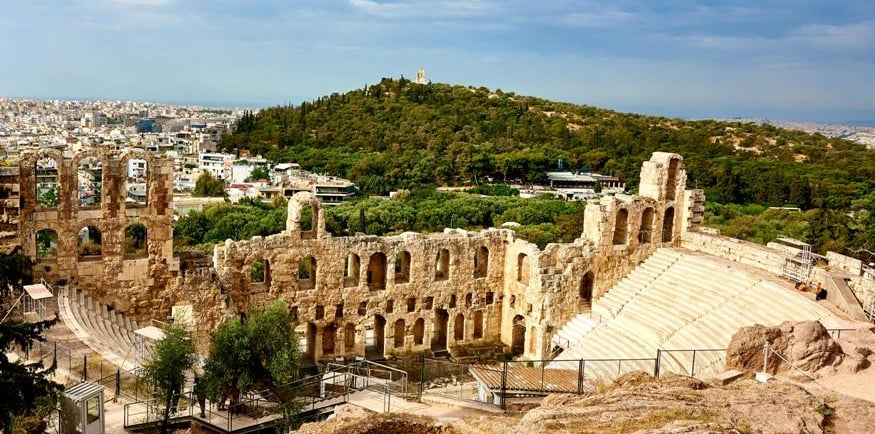Increase Your Brainpower with Classics
Reading and learning about classics can greatly increase your brainpower, enhance your cultural literacy, and improve your overall learning capability. Classics, such as ancient Greek and Roman literature, offer a wealth of knowledge and insights into the human experience throughout history.
by Z. Hereford


Reading and learning about Classics significantly increases your brainpower, learning capability, and cultural literacy.
As a big believer in each of us developing our intellectual capabilities, I believe there is nothing like Classical Studies to broaden our knowledge base and expand our understanding of the world.
Classics, or Classical Studies, deals with ancient Greece and Rome's literature, art, history, philosophy, and cultures.
Why Classics? How could reading about classics be of practical use in increasing brain power?
Of course, I'm not advocating enrolling in an intense university program in Greek and Latin. I'm suggesting, instead, that you consider incorporating more classical reading into your routine and
Here's why:
1. Because it's fun and entertaining. The Classics have also provided a basis for the enjoyment of many movies, comic book heroes, and video games that contain references to classical history and mythology, e.g., Troy, Gladiator, O Brother Where Art Thou (movies), Hercules, The Fantastic Four (comic book heroes), and God of War (Playstation2), to name a few.
2. It feeds the imagination if you want to be a writer (or aspiring blogger). J.K. Rowling, author of the Harry Potter books, studied Classics and uses much classical terminology and references in her books. The first Harry Potter book has been translated into Latin and ancient Greek.
3. It enriches and broadens our understanding of Western culture, history, and literature. Classics also give us an appreciation for where our language and customs originated and a sense of connection to the past.
4. It helps us understand the human condition and ourselves. For instance, Greek mythology was then and serves today as a study of human nature, the dynamics of the human mind, human behavior, and the forces that drive us. We learn about jealousy, love, grief, narcissism, good and evil. It's fast-tracking for Life 101.
5. The skills and knowledge acquired through the study of Classics are highly transferable to other areas. For example, the ability to deal with precise details, express yourself, problem solve, think critically, and manage your life is honed and sharpened by studying Classics.
Similarly, much of our medical and scientific terminology is rooted in Classics, and learning about the Greeks and Romans can facilitate the study of anatomy, astronomy, and physics.
Many modern sciences have Greek names because the ancient Greeks invented them or made significant contributions.
Becoming familiar with classical literature gives us perspective and an understanding of European and English literary genres and their evolution. The Greco-Roman influence has had an enduring effect on every aspect of Western culture, including languages, history, philosophy, literature, science, technology, and art.
Interesting facts about Classics and Classical Studies:
✔ The first written record of Greece and the oldest form of Greek literature is Homer's Iliad (circa 1000- 900 B.C.)
✔ A book of maps gets its name from Atlas, the Titan who supported the heavens on his shoulders.
✔ The point of vulnerability is an Achilles' heel because the mythological warrior Achilles had been magically protected in all but that part of his body.
✔ Our calendar goes back to the ancient Romans, and the ancient Hebrews introduced the 7-day-week.
✔ The statue of Abraham Lincoln in the Lincoln Memorial in Washington D.C. was inspired by the statue of the Olympian Zeus by the Greek sculptor Pheidias. The designs on Lincoln's armrests are a Roman symbol of justice and republican government.
✔ Law schools report that their top students come from math, the Classics, and literature rather than political science, economics, and legal studies, as expected.
✔ David W. Packard of Hewlett-Packard was a former professor of Greek and Latin, and Chris Martin from the band Coldplay studied The Classics.
E.D. Hirsch Jr., who is well known for coining the phrase 'cultural literacy' and for his theories on education, states that:
"As a consequence of the fact that we learn most easily when we attach the new to the old, people who already know a lot tend to learn new things faster and more easily than people who do not know very much."
In other words, the more knowledge and background we have of our world and its evolution in language, history, arts, and sciences, as presented in Classics, the better a foundation we have for learning new and current information.
What better way to cultivate and preserve our brainpower?
